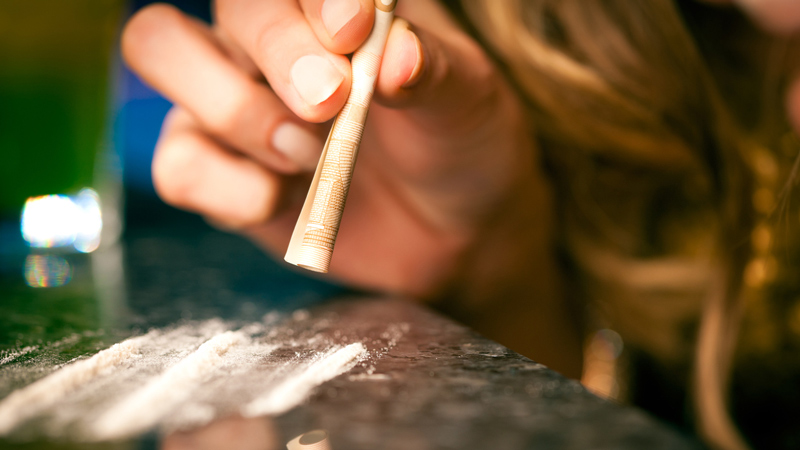Why drug use is in the sewers
Evidence has revealed cocaine use is on the up. In London, cocaine discovered in a study of sewer water showed levels have risen by a fifth between 2014 and 2016. In Bristol levels are higher still – beating Munich, Oslo, Stockholm and Lisbon.
Cocaine addiction can devastate lives, causing a variety of problems both physically and mentally. It can destroy relationships and cause those with a cocaine habit to be financially ruined, as they spend money on their habit and lose work and jobs through unreliability and personality changes.
Symptoms of cocaine addiction
- Obsession with your next fix of cocaine
- Highs – and extreme lows
- Your life revolves around your use of cocaine
- High energy alternates with exhaustion
- Restlessness
- Aggression
- Paranoia
- Poor judgement
- Nosebleeds
- Weight loss
Dr Bruce Trathen, who is a clinical Lead in London’s clinics for detox from drugs and alcohol comments: “Chronic, frequent use of stimulant drugs may lead to the development of a chronic paranoid perspective or fully formed psychosis that is difficult to differentiate from schizophrenia.”
Medical detox from cocaine?

Dr Trathen says that medical supervision from a cocaine detox can help ensure withdrawal from cocaine happens smoothly for a lasting recover. He says: “At the moment, there is no medical detox process for cocaine use in the same way as there is for alcoholism or heroin addiction. However, it’s vital the patient is assessed properly by doctors so appropriate treatment can be offered.”
He adds: “Many people who abuse alcohol also have an issue with alcohol alongside it, so medication may be required. Close supervision and behavioural therapy, alongside nutritional therapy will be offered; staying at a medical detox centre means doctors can monitor the side effects that come with cocaine withdrawal, which may include insomnia and depression.”
Cocaine abuse can be life-threatening – even fatal. Dr Trathen explains: "Medical complications of stimulant intoxication may be serious and life-threatening; cocaine intoxication is the commonest cause of myocardial infarction in young males presenting to A&E departments."
When to detox from cocaine

When cocaine users reach the understanding that the drug is having a comprehensively harmful effect on their lives and has ceased to provide them any pleasurable pay off then they will want to quit.
However, the power of the addiction is so difficult to overcome and the effects of detoxing so distressing and potentially dangerous that experts recommend getting professional help should you decide you are ready to quit.
Although any level of use of cocaine can trigger addiction – more so with the concentrated form crack – there are distinct signs that users have progressed from experimental usage to the dependent stage.
Users find that getting their hands on some coke becomes a priority, they are unable to relax, and mood swings become increasingly severe. Maybe they don't see their old non-using friends anymore and only associate with people who share their cravings for the white powder. It's possible the drug has affected their personality to the extent that they have damaged valuable relationships with friends and family.
The cost of cocaine addiction
Cocaine addiction can affect emotional stability and cause users to react with fear or aggression for no reason. The day to day management of life is also increasingly problematic for those burdened with addiction as they struggle to make good decisions on simple practical matters that have a cumulatively serious effect on their conditions and environment. Cocaine addicts often find themselves embroiled in other areas of life that need to be navigated with care – for example getting involved in sexual liaisons that they later regret or allowing other vices to get out of hand, usually drinking. Then there are the basic physical harms cocaine will cause as users take more and more to try and recapture the initial high, these are runny nose or nosebleeds, the emaciated face and body, depression and lack of vitality.
Drug detox centre, London
Experts at Serena House can provide the medical and psychological support needed for sufferers to endure the potentially dangerous symptoms associated with coming off cocaine. Ongoing monitoring by Serena House doctors and addiction experts is a vital resource and they are in plentiful supply.
“Cocaine addiction is often part of a lifestyle, which is one off the reasons this drug is so hard to quit,” says Des Hill, one of the highly qualified therapists at Serena House. It’s something Des is only too aware of. Prior to studying for his qualification in counselling, he was a cocaine user himself, before he underwent treatment. He comments: “With the right help, you can and will get off cocaine. The diagnostic facilities and high levels of medical care at Serena House can nurse you back to good health.
“Our behavioural therapies will replace a harmful lifestyle with one that is fruitful, happy and healthy.”






